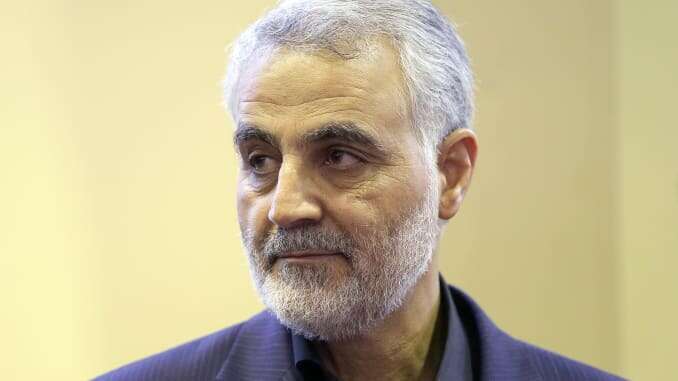Iran’s top commander, General Qassim Soleimani has been killed in a U.S. drone strike in Baghdad, the Pentagon said on Thursday night following reports of his death on Iranian state television and Iraqi media.
Soleimani, who led a special forces unit of Iran’s elite Revolutionary Guards, has been a key figure of Iranian and Middle East politics, CNBC reports.
His death exacerbated already-high tensions between Iran and the United States, and triggered concerns of retaliation from Iranian forces.
Oil prices rocketed by nearly 4% in the morning of Asia trading hours while brent crude soared 3.98% to $68.90 per barrel, while U.S. crude surged 3.87% to $63.55 per barrel.
Here is the full statement from the Department of Defense:
At the direction of the President, the U.S. military has taken decisive defensive action to protect U.S. personnel abroad by killing Qasem Soleimani, the head of the Iranian Revolutionary Guard Corps-Quds Force, a U.S.-designated Foreign Terrorist Organization.
General Soleimani was actively developing plans to attack American diplomats and service members in Iraq and throughout the region.
General Soleimani and his Quds Force were responsible for the deaths of hundreds of American and coalition service members and the wounding of thousands more.
He had orchestrated attacks on coalition bases in Iraq over the last several months – including the attack on December 27th – culminating in the death and wounding of additional American and Iraqi personnel.
General Soleimani also approved the attacks on the U.S. Embassy in Baghdad that took place this week.
This strike was aimed at deterring future Iranian attack plans. The United States will continue to take all necessary action to protect our people and our interests wherever they are around the world.
The latest revelation comes on the heels of a New Year’s Eve attack by Iran-backed militias on the U.S. Embassy in Baghdad. The two-day embassy attack prompted President Donald Trump to order the deployment of approximately 750 U.S. soldiers from the 82nd Airborne Division to the Middle East.
The wave of protests in Iraq came hours after the U.S. carried out military airstrikes in Iraq and Syria against an Iranian-backed militia group on Sunday.
Trump ordered the “precision defense strikes” on five Kata’ib Hizbollah facilities following a string of attacks on Iraqi military bases that host American troops. Last week, a U.S. civilian contractor was killed in a rocket attack on an Iraqi base near Kirkuk.
On Thursday, Secretary of Defense Mark Esper told reporters at the Pentagon that the U.S. may conduct preemptive strikes against Iranian-backed militias.
“If we get word of attacks, we will take preemptive action as well to protect American forces, protect American lives. The game has changed,” he said.
U.S. Secretary of Defense Mark Esper speaks during the joint press conference with Chairman of Joint Chiefs of Staff General Joseph Dunford (not in the picture) on August 28, 2019 in Arlington, Virginia.
Earlier this month, Secretary of State Mike Pompeo blamed Iranian-backed forces for a series of attacks on bases in Iraq and warned that any future attacks on Americans or U.S. allies would be “answered with a decisive U.S. response.”
“As long as its malign behaviors continue, so will our campaign of maximum pressure,” Pompeo said during a Dec. 11 press conference at the State Department.
Following the reports of Soleimani’s death, Helima Croft, head of global commodity strategy at RBC Markets, warned: “This brings us to the precipice of a full-blown shooting war with Iran — not a shadow war or a proxy war.”
“It is almost impossible to overstate the implications of this event,” she told CNBC via email.




